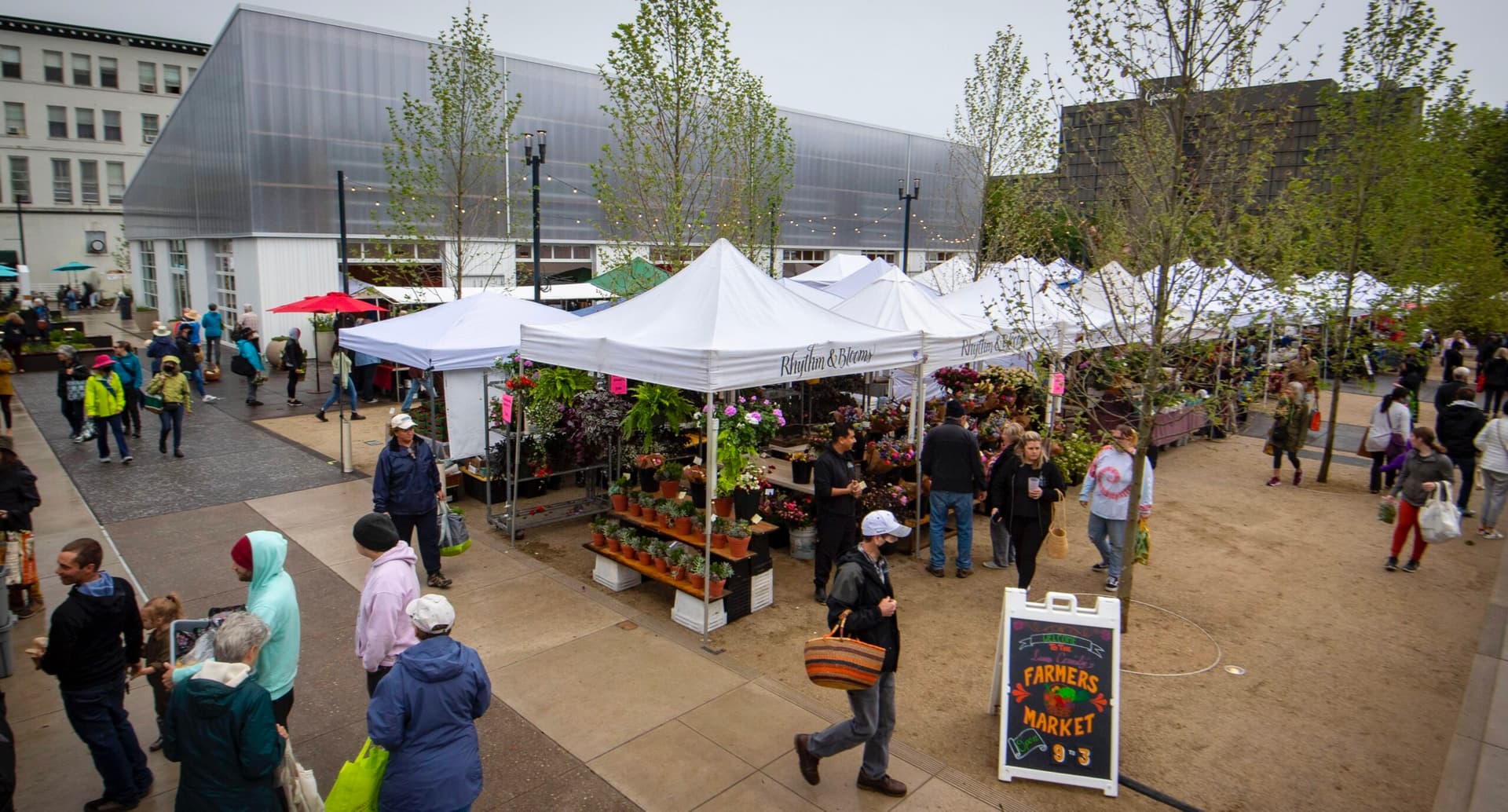Lane County Farmers Market Anchors Local Food Access, Small Business Growth
The Lane County Farmers Market serves as Eugene's year round market at the downtown 8th and Oak site, featuring more than 100 vendors offering locally grown fruits, vegetables, flowers, plants and prepared foods. As a major venue for food access, small business activity and community events and fundraisers, the market shapes downtown vitality and raises policy questions for local officials about public space, permitting and support for local producers.

The Lane County Farmers Market operates from the downtown 8th and Oak site as Eugene's year round market, with a main Saturday market downtown and seasonal Tuesday markets. The market hosts more than 100 vendors who sell locally grown fruits, vegetables, flowers, plants and prepared foods. Seasonal hours vary with the time of year, and practical details including typical hours, vendor rules, holiday and indoor market schedules, and contact information are maintained on the market's official site and regional visitor pages.
For many residents the market is more than a place to shop. It is a primary point of food access and an important small business venue for growers and producers who rely on direct sales. The market also functions as a community hub, hosting events and fundraisers that draw foot traffic to downtown Eugene and support nonprofit activity. That combination of food distribution, entrepreneurship and civic life makes the market an influential local institution.
The market's prominence carries policy implications for Lane County and the City of Eugene. Officials who oversee public spaces may need to weigh competing demands for downtown sidewalks and plazas, especially as seasonal hours change and events expand. Permitting and vendor regulation are practical matters that affect vendor livelihoods, and municipal decisions on staging, sanitation and safety influence both public health and commerce. Transportation and parking considerations also factor into who can access the market, shaping equity for shoppers who depend on transit or walking.
Beyond logistics, the market intersects with broader public policy topics such as local food security, economic development for small business, and community resilience. Markets that serve as fundraising venues and gathering places can help sustain civic networks that in turn influence local priorities at public meetings and at the ballot box. City and county policymakers have a role in assessing whether existing rules and supports align with the market's economic and social functions.
For residents, vendors and community groups, engagement matters. Attending markets, communicating needs to market organizers, and participating in public discussions about downtown public space and vendor support are concrete ways to influence policy choices. Those seeking current information on hours, vendor requirements and event schedules should consult the market's official site and regional visitor pages.
As the Lane County Farmers Market continues to operate through the seasons, it remains a central point where food access, small business activity and civic life intersect, presenting practical choices for local leaders and everyday opportunities for community participation.


